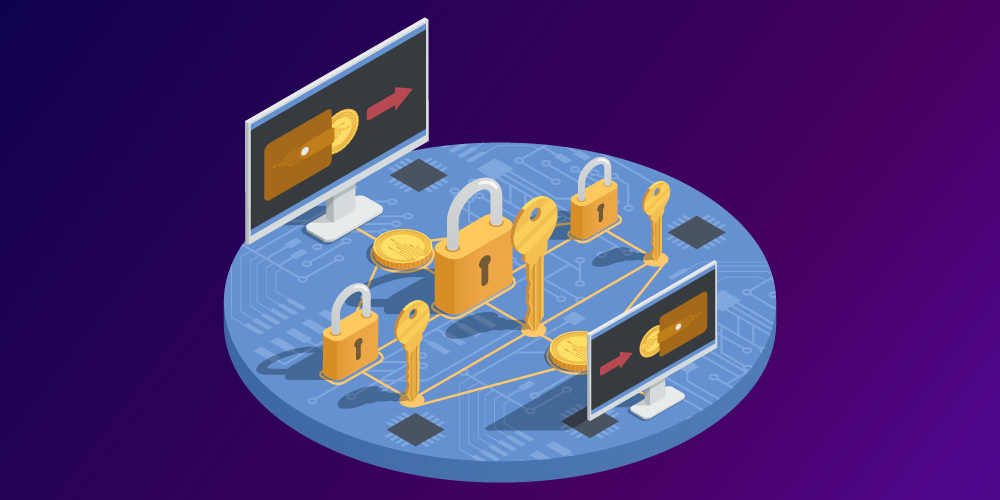Are you considering investing in cryptocurrency and your problem is that cryptocurrencies are too complex and confusing? At first, yes, but once you delve into their study, you will not be stopped.
Exploring the crypto space
Some of your friends and colleagues may be excited about bitcoin and Ethereum, while others will Advise you to stay away from them. But anyway, most people follow current events in the cryptocurrency markets, and quite often you hear terms commonly used in the crypto community right on the street, but you have no idea what they mean. This is because cryptocurrencies have already taken over the world.
And then, one bright morning, you suddenly realized that a great crypto trader is dying in you, and you just need to invest something somewhere to become terribly rich and successful. The problem is that you don’t know what’s going where yet.
Investment in cryptocurrency or trading will come, but later. And now, the first step for any newcomer to the crypt is to get fundamental knowledge. After that, the next step is to keep up to date with the latest developments and cryptanalysis. Perhaps then you will be ready to track and filter daily news in order to enter the field of cryptocurrencies with an already formed strategy. For now, it’s about just logging in, rather than letting FOMO manage your decision-making process.
What is cryptocurrency?
The name “cryptocurrency” speaks for itself. This is a virtual currency in a mysterious format. Virtual currencies can act as a digital medium of exchange on the network. Cryptocurrencies work on a peer-to-peer transfer system. In this system, one user is able to send cryptocurrency to another user directly over the Internet. The transaction does not involve intermediaries.
The audit log for all transactions is part of the network, and all records are encrypted using private and public keys. There is no transaction fee or Bank Commission for cryptocurrency. Due to the lack of intermediaries, the transaction is almost instantaneous. The data warehouse is located in a decentralized form using distributed registry technology.
Now you’re eager to ask yourself how to get value? Let’s be clear about this: cryptocurrencies have a perceived value. A positive perception will increase the perceived value of the digital currency, and Vice versa. Interestingly, this is very similar to how stock prices are determined: a favorable impression can lift stocks during the day.
Perception versus reality
But why buy a cryptocurrency if it is based on the perception of the market, especially if it does not have a physical or material nature? There are two main reasons. First, cryptocurrencies have a huge potential to generate cash returns – much higher than stocks. There are also significant risks (hence the advice given above).
Second, it can be used as an alternative currency for services supported by cryptocurrency. Yes, there are many cases when service providers accept cryptocurrency for goods and services. For example, PotCoin (POT) is a cryptocurrency used to buy legalized marijuana. PotCoin has a market capitalization of over $ 1 million and a maximum offer limit of 420 million coins. According to CoinMarketCap, the cost of 1 PotCoin is 0.0067 us dollars.
Did you know that people who owned Bitcoins 10-11 years ago considered them worthless? Some ended up buying pizza from them, while others bought illegal goods from underground markets. If they had even a fraction of these coins today, they wouldn’t own a single pizzeria in the world!
How do stock market leaders and gurus relate to cryptocurrency
Some stock market veterans strongly oppose the concept of cryptocurrencies. Famous Berkshire Hathaway CEO Warren Buffett has always been a vocal critic of Bitcoin. He was nicknamed the “Oracle of Omaha”. Some wall street analysts even view his stock choices as if they were Nostradamus ‘ prophecies for the modern world (figuratively speaking, of course).
A CNBC report discussed Buffett’s views on Bitcoin and the technologies it is based on. Buffett called Bitcoin a “gaming device” and “rat poison squared” and also said that some people use it for fraud. Charlie Munger, Vice Chairman of Berkshire Hathaway, also shared his opinion on virtual currency trading. A CNBC report says Munger believes “dementia” is fueling cryptocurrency trading. But these are the ones who are against the crypt. And there are so few of them left.
On the other hand, Facebook (FB) CEO mark Zuckerberg has tried to use the crypto wave. Facebook’s plans to launch its Libra cryptocurrency have run into many obstacles. They initially attracted many significant players, but things started to fall apart when regulators “lynched ” the project. Soon, many well-known participants left Zuckerberg’s crypto project, starting with PayPal (PYPL). The exit of Mastercard and Visa was already a matter of time, and did not take long to wait. Ideally, Zuckerberg designed Libra to be supported by international assets. In this way, it could enter the global market, as Bitcoin did.
Millennials and cryptocurrency
Many users of the Internet and the Millennials included in cyber communities, I do not agree with Buffett’s view on cryptocurrencies. A January 2019 Forbes article details how cryptocurrencies are becoming commonplace among Millennials. On the other hand, Cointelegraph cited a Bankrate study that States that generation Y (born after 1981), almost three times as many as generation X (born from 1960 to 1979), are looking to invest in cryptocurrency. I think it is natural that people who are comfortable with modern technologies will gradually become more inclined to digital assets until they fully accept them.
And the terms…
To the layman, stock exchange terms sound like gibberish. Words like “margin lending”, “yield curve”, “leverage”, “repurchase” and “repo rates” can drive a person crazy. The same is true for newcomers to the crypto sphere.
Cryptocurrencies are not much different from stocks. It’s just that stock markets have been functioning for ages, while cryptocurrencies only started to gain momentum in 2008. The stock market crash was a global tragedy, and in some ways paved the way for the growth of the MTC and digital currencies.
Any person, when he learns this or that area, is faced with a specific terminology. Somewhere it is more specific, somewhere less. But, without studying it, it is unlikely that you will succeed. But that’s later.
Where to buy cryptocurrency
Are you probably full of thoughts about your own pizzeria using cryptocurrency? Better leave it at that for now, and focus on the basics. Although, the soldier who does not dream of becoming a General is bad.
And so: the question of acquiring crypto assets.
Like stocks, cryptocurrencies are sold on cryptocurrency exchanges, exchanges, and ATMS (crypto ATMs). With the emergence of global players, the list of exchanges continues to grow. Each crypto exchange has a website and mobile apps for cryptocurrency trading.
You can also safely transfer and store all your crypto funds in a digital wallet accessible from anywhere in the world. Cryptocurrency purchase and sale rates are determined based on transaction volume and market perception. So, theoretically, there is a possibility of arbitrage or a difference in exchange rates between two exchanges. But in practice, the spread charged by exchanges can negate the possibility of arbitrage. But these are the subtleties of crypto-tading, which we will touch on next time.
Decentralization
But who is the ruler of the world of cryptocurrencies? Who regulates and manages them? Who protects investors? This is the part you need to pay more attention to.
Regulatory oversight is one of the areas where crypto and stock trading differ from each other. Stock exchanges must operate in accordance with regulatory guidelines and regulations.
National stock exchanges are usually located in the center of business centers somewhere within the country, but a crypto exchange can have an office anywhere in the world. It is usually created by individuals as an enterprise in the cryptocurrency market. For example, BitForex is headquartered in Hong Kong, but is registered in the Republic of Seychelles. It has offices in Germany, Estonia, Singapore and Malaysia, as well as clients around the world.
Bakkt is the first regulated cryptocurrency exchange. It supports trading Bitcoin futures with the ability to pay in cash, and has the support of ICE (Intercontinental exchange). According to CNBC, ICE acquired NYSE Euronext for more than $ 8 billion back in 2012. The Bakkt digital asset ecosystem portal hopes to attract more institutional investors to cryptocurrency futures trading.
How cryptocurrency attracts funds

Startups produce most of the virtual currencies. The fundraising process is very similar to issuing an IPO on stock exchanges. But for cryptocurrencies, instead of an IPO, the process is called an ICO (initial coin offering). ICOS are much like crowdfunding. Investors who Finance ICOS receive cryptocurrency tokens in return (compared to shares in an IPO). The token Issuer will place the cryptocurrency in the investor’s wallet, and the wallet will be protected with encryption. Without decryption keys for online storage, the coins are permanently locked and there is no way to get them back.
Unlike equity investments, cryptocurrency investments provide investors with digital assets rather than physical or tangible assets. Careful preservation of passwords, encryption keys and decryption keys is the main responsibility of the investor.
How to decide whether to invest in an ICO
Your decision to invest in an ICO is crucial. A good ICO can bring you a lot, a lot of money, but a bad choice can leave you “out of your pants” and make you lose faith in the crypt. Let’s not forget that ICO fraud is too common. The limited control makes it easy for people to launch their own coins. In fact, creating a digital currency is not difficult. Almost every programmer or developer is able to create it using online tools. But let’s not get distracted from our topic.
During the issue of shares, the company makes an advertising maneuver. This prospectus includes detailed information about the company, its core business values, underwriters, issue price, and other important information. In the case of an ICO, the startup issues a white paper. The official document contains comprehensive information, such as the services supported by the cryptocurrency, the denomination, token shares, and details about the supply of coins. Reading an official document and exercising due diligence is of the utmost importance. If you have even a drop of doubt, you should carefully study this before investing. If doubts persist, stay away from the ICO. And the further you go, the better. This is the only way to make sure that you are safe and not deceived.
Blockchain and cryptocurrencies

Blockchain is a technology that supports virtual currencies. Many people believe that technology is synonymous with cryptocurrencies. However, in addition to crypts, this technology has many practical applications, both for corporate solutions and for other industries. Blockchain is a potential breakthrough among technology companies in 2020.
The blockchain network is based on the concept of a distributed Ledger, in which all transactions stored on the network are encrypted. There are two types of blockchain networks: private and public blockchain networks. Both have different advantages in sectors such as e-Commerce, healthcare, insurance, financial services, supply chain management, and other business verticals.
Result
Based on all of the above, it is clear that cryptocurrencies are still developing. Regulators in many countries are still thinking about how to protect crypto investors. Some countries are open to the idea of accepting cryptocurrencies, while others have banned them.
Bitcoin is legal in the United States, Canada, Australia, and some European Union countries such as Germany, the United Kingdom, Belgium, and others. On the other hand, countries such as China, Russia, India, and some South American countries are opposed to the use of crypts. This suggests that before you rush headlong into the crypto space, you should carefully study the legal field for the crypt of your country, and along the way, the Criminal procedure code. But we’ll talk about this in the next part.
End of the first part.


